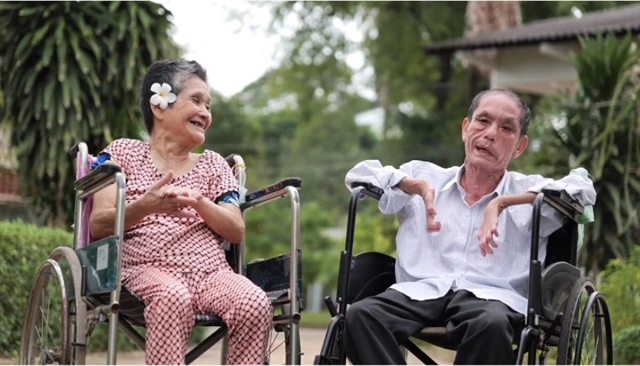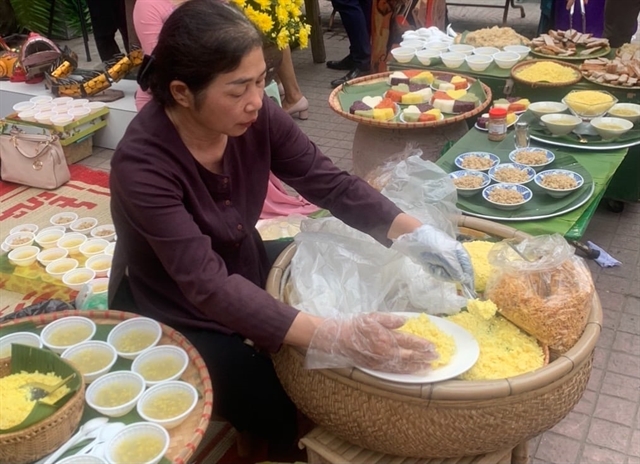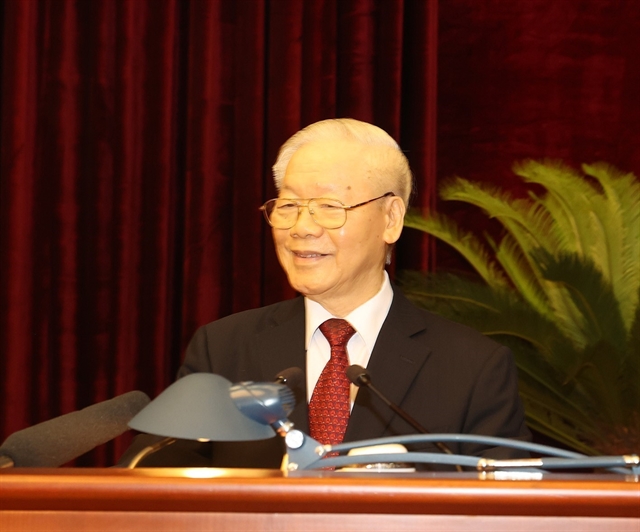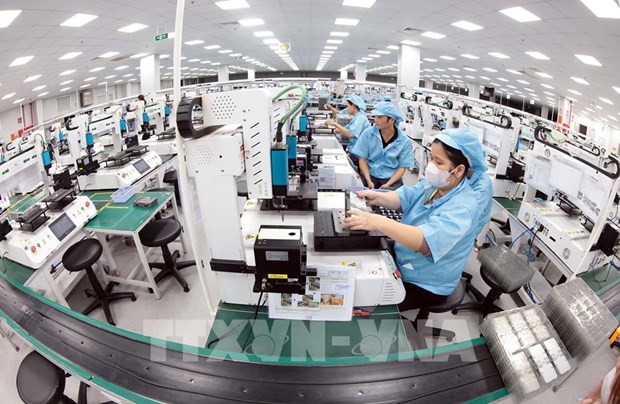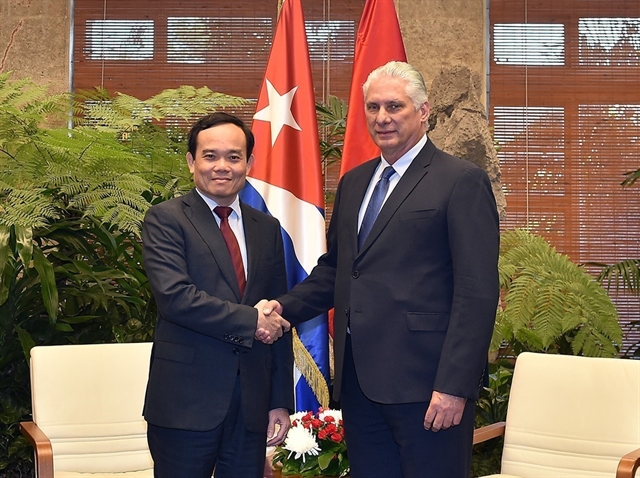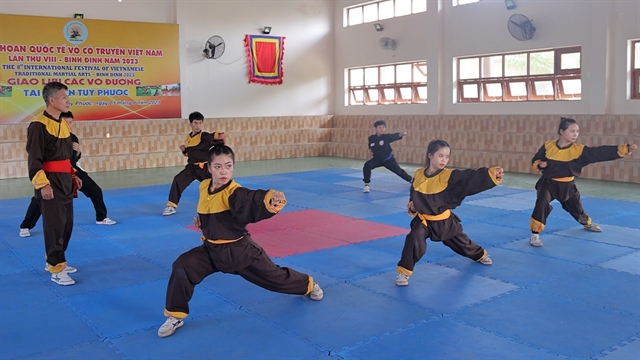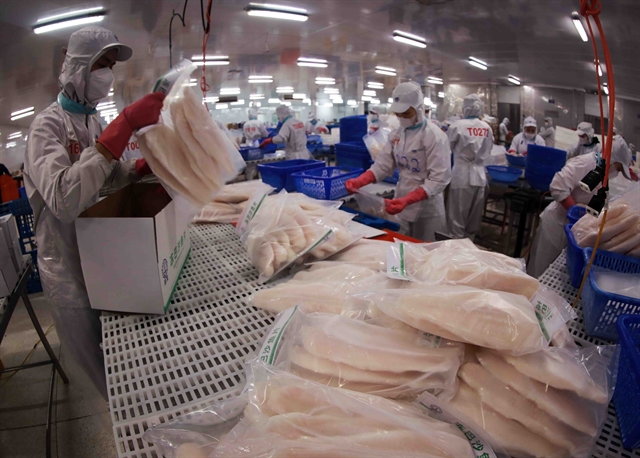 Economy
Economy
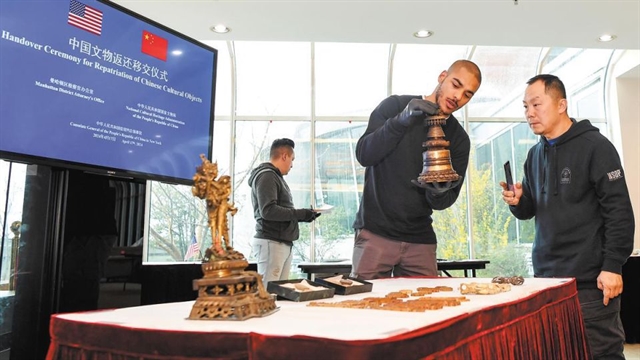
Coconut producers have been given a timely boost after plans were revealed to offer more support to those who work in the industry.
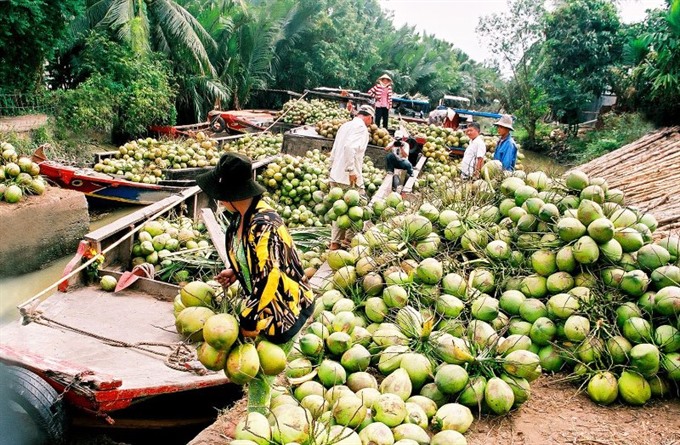 |
| Trà Vinh Province has the second largest coconut plantation area in the Mekong Delta, after Bến Tre Province, with nearly 20,000ha. — Photo goixe.net |
HÀ NỘI — Coconut producers have been given a timely boost after plans were revealed to offer more support to those who work in the industry.
Small and medium-sized enterprises (SMEs) operating in the Mekong Delta province of Trà Vinh received the welcome news this week from Tô Ngọc Bình, deputy director of the provincial Department of Planning and Investment and director of SME Trà Vinh project.
Coconut growing is a big deal in Trà Vinh as it’s the second largest plantation in the Mekong Delta with near 20,000ha.
According to the provincial Department of Agriculture and Rural Development (DARD), in order to upgrade the value chain of the industry, the province will focus on strategic solutions such as improving technologies and techniques; replacing coconut cultivars; mechanising transportation; preliminary processing and packaging of coconut fiber industry and diversifying products from coconut fiber and coconut peat.
Trà Vinh will also focus on improving the capacity of corporate management and market access, establishing a satellite network to supply coconuts to processing plants, increasingly promoting trade and supporting enterprises.
A recent survey in two districts with the largest area of coconut in the province (Càng Long and Tiểu Cần) revealed companies operating in the coconut industry in the province mainly use coconut fiber as materials to produce nets, coir, mat and activated carbon. Meanwhile other materials such as copra and coconut milk are made use of by traders and processors outside the province.
It’s hoped in the future local traders and farmers will be able to expand their business to get the best prices for the fruit.
Relevant units will now spend time assessing and analysing the business and propose better solutions to the problems many farmers face, said Phạm Minh Truyền, vice director of the provincial DARD.
Currently, there are six enterprises operating in the coconut industry of Trà Vinh. The province strives to more than double that to 15 by the year 2020, with at least four of them exporting directly.
Raising value chain for peanut
And it wasn’t just coconuts that came under the spotlight.
On Wednesday, Trà Vinh’s DARD and SME project management board also organised a conference to seek solutions for enhancing peanut’s value.
Currently, peanut planting productivity in the province reaches the highest in the country with more than five tonnes per ha.
Peanut from this area are known for being top quality, with big seeds, bright shells and low impurities.
They are considered perfect for processing and export. But despite all their good points, the industry has suffered a number of blows.
Right now, the sources of seed supplied by local people only meet about 20 per cent of the demand, 80 per cent of the remaining peanuts are imported from other provinces.
There is also lack of peanut processing enterprises in the province, causing obstacles for consumption market. Hence, the upgrading of the peanut industry’s value chain to reduce costs and increase profits is an urgent task, Truyền said.
But there is light at the end of the tunnel, as DARD is in the process of testing new types of peanuts that can be grown in the rainy season. If successful, these peanuts will be rolled out and put into use.
The Trà Vinh SME project, carried out during 2014-20, is sponsored by the Canadian Department of Foreign Affairs and International Trade with a total investment of 12.1 million CAD (US$9.8 million), with 11 million CAD being non-refundable aid.
The provincial People’s Committee has also issued a policy to provide financial support to cooperatives and their alliances when joining the large-scale field model, which is being implemented in the locality.
Under the policy, farmers who are growing rice, fruit trees, and coconuts will be provided with VNĐ840,000 (US$36.84) per ha for the first crop and VNĐ560,000 per ha for the second crop.
Farmers join the large-scale field model will also receive subsidy of 30 per cent of seed or sapling costs for the first crop. — VNS

